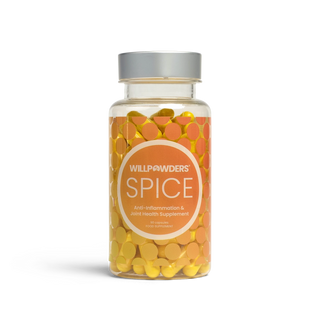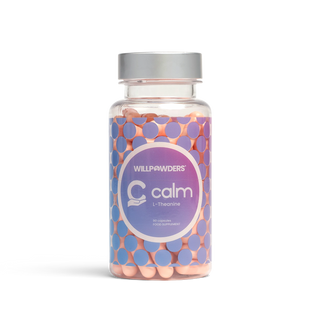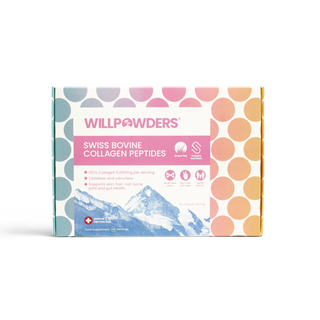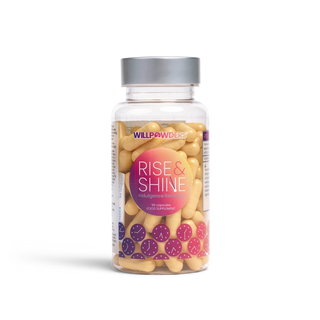

Why MCT Oil should be Part of Your Diet
MCT, or Medium Chain Triglycerides, are most commonly extracted from coconut oil and some goat’s milk, which, in recent years, has been shown to have various health benefits; from its antibacterial properties to its resistance to high heat cooking.
What are Triglycerides?
Triglycerides is another word for fat. Not all fats are created equal and PUFAs (Polyunsaturated Fatty Acids) such as sunflower oil and rapeseed oil should be avoided at all costs. To ensure you keep a wide berth from these gut destroyers, you should always have a scout of the ingredient lists - always look at the back of products and don’t just rely on the message they want you to see on the front.
Triglycerides are made up of a number of carbon atoms in the fatty acid structure. MCT is typically 6-12 (C6-C12) atoms in length, whilst PUFAs can be as much as 40-48 (C40- C48). The longer the chain, the harder it is for the body to absorb it and change it into ketones to fuel the body. Dr. Cate Schanahan brilliantly explains all of this glorious science in her book, Deep Nutrition. She explores how the habits of our ancestors can help us lead longer, healthier, more vital lives. Deep Nutrition: Why Your Genes Need Traditional Food : Shanahan, Catherine M.D.: Amazon.co.uk: Books
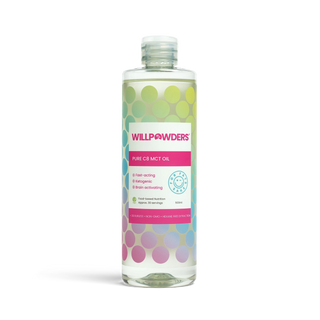

MCT Oil
MCT Oil is a supplement that has become popular among Biohackers, bodybuilders and those opting for a higher-fat, lower-carb diet for weight loss, better energy and even those who are interested in its neuro-protective qualities.
So, what’s so Great about MCTs and what are the Benefits to MCT Oil?
When they are ingested, your body converts them into ketones—a more clean and sustainable form of energy. Since MCTs easily enter your cells without being broken down, they can be used as an immediate source of energy. These ketones help you burn fat for energy rather than glucose (derived from carbs), which, in turn, can aid in weight loss, boost energy and even enhance cognitive function. Not only this, MCT reduces cravings, keeps you full and satisfied and supports intermittent fasting.
What are the Different Types of MCTs and why WillPowders' MCT Oil is the Best!
There are four types of MCTs, and they all play different roles in the body. Let’s take a deeper look into what each type of MCT does and how they benefit the body. The numbers beside the names indicate the length of the carbon chains.
- Caproic Acid (C6): This is the shortest form of MCTs, and it is converted to ketones the fastest. However, they are not the best quality MCT out there. They are also known to cause disruptions in your digestion, and may cause you to make a few too many trips to the bathroom.
- Caprylic Acid (C8): This is of superior quality. It converts to ketones within a matter of minutes, making it a very powerful suppressor of hunger, fuelling your brain in a way that other MCTs do not. C8 makes up WillPowder’s MCT Oil, simply because it is the best!
- Capric Acid (C10): This form takes a little longer to get converted into ketones, and doesn’t give you a high ketone spike, meaning you won’t feel the aforementioned benefits as much - it still does the trick in terms of conversion though.
- Lauric Acid (C12): This form is more of a long chain fatty acid and is widely found in generic coconut oil. However, it won’t help produce ketones to curb your hunger or sharpen your cognition as much as the other three chains. It is effective when it comes to fighting off viruses, fungi, and bacteria, including Staph and Candida - the funghi that makes you crave sugar and causes bloating and fatigue.
WillPowder’s C8 MCT Oil benefits the brain, curbs the crave and has a milder taste, meaning you can drink it directly from the bottle for that quick hit.
How can MCTs Benefit me?
The consumption of MCTs has a multitude of benefits for our bodies and minds. Here are the top three reasons why an MCT supplement should be a regular part of your diet.
Does it Help with Cravings?
When our stomachs are empty, we start feeling the slump. This is when we release ghrelin (our hunger hormone), which lets the brain know it’s time to eat. Once you eat, the body releases cholecystokinin (CCK), which is the major hormone responsible for gallbladder contraction, as well as the secretion of the pancreatic enzyme, which lets the brain know it is now satisfied. With the consumption of MCTs, ketone bodies have been shown to actually suppress ghrelin and enhance CCK, meaning you feel less hungry and more satisfied. This can not only lead to healthy weight loss, but the ketones also increase metabolism, can reduce fat storage because you burn the fat you already have stored, as energy. Talk about living in Bonus City!
In addition, one study has found that people taking 2 tablespoons of MCT oil as part of their breakfast routine ended up eating less food for lunch compared to those taking coconut oil. Furthermore, another study found that taking the MCT oil before exercise may help you use more fat instead of carbs for energy. Before you try this, it’s important that you are fat adapted. To learn how to become fat adapted, give our How to WillPowder using MCT Powder and MCT Oil Guide a read. Our guides and FAQs have been written to answer all of your questions like: How to use MCT Oil for weight loss? What are the side effects of MCT Oil? What are the benefits of MCT Oil? How to use MCT Oil in your coffee, drinks and food? Will MCT Oil break a fast?
Moreover, MCT oil could help increase the production of heart-protective HDL (good) cholesterol. This may, in turn, help reduce your risk for heart disease and obesity. Pass the oil!
Will it Help my Brain Fog?
The ketones produced by MCTs are thought to provide immediate energy to our brain’s neurons, without the inflammation and crash that comes along with sugar spikes. As a cleaner, more sustainable form of energy, burning ketones may do away with the brain fog, the tip-of-the-tongue moments and give you clearer mind. This will also help enhance mood and memory. In fact, one of the first symptoms of neurodegenerative diseases, such as Alzheimer’s or dementia, is impaired glucose metabolism in the brain—when the sugar can’t get where it needs to go, brain cells start to die. Ketones work on a separate system from glucose, and that system often stays intact in people with dementia. That means, MCTs can provide energy to dying brain cells, keeping neurons alive in the face of degeneration. In some cases, ketones have been shown to even reverse symptoms. With the rising number of cases of these illnesses starting in younger people, the absorption of MCTs are a preventative measure that we all need to take. WillPowders will keep an eye out for the latest studies on dementia treatments and keep you posted.
Will it Help my Workout?
Who wouldn’t want more energy? MCTs make excellent fuel for your workouts, or even daily running around. Sugars and simple carbs sap not only your energy, but also reduce your testosterone, which decreases endurance and even muscle building during workouts. MCTs also help you build up less lactic acid as you exercise, so you can go on longer and stronger! When you’re burning your own body fat as energy, you won’t need to refuel as often.
Kick your workout off with WillPowder’s Brain Powder for a burst of energy and finish it with our MCT Oil to continue riding that fat burning wave.
MCT oil is so diverse that you can swig it back from the bottle, or use it in your coffee, shakes, or even in your cooking! Incorporating MCT oil in your daily diet is only going to benefit your health and fuel your body is the best way. It is a great alternative to PUFA's and sugars, as it will keep your gut in check and support you in backing away from the snack stack.
Disclaimer
Our blogs are written with love in the hope that they go some way in helping you feel like the rockstar you are, and whilst we do our due diligence, research like maniacs and fact check our stuff, we know everyone’s journey is different. They are intended to educate and empower you, not usurp medical advice. We would never advise you to stop, adjust, or modify any prescription medication without the direct supervision of your healthcare practitioner, but don’t be afraid to talk to your doctor about your new found knowledge, brought to you by the marvels of nature because they don't know everything! Blogs are always informed by Davinia but often written by a member of the team. Not all blogs reflect Davinia's experiences and sometimes provide alternative perspectives

 Collagen
Collagen
 Protein
Protein
 MCT
MCT
 Electrolytes
Electrolytes
 Vitamins & Minerals
Vitamins & Minerals
 Hormones
Hormones
 Nootropics
Nootropics
 Kombucha
Kombucha
 Biohacking Books
Biohacking Books
 Bundles
Bundles
 Accessories
Accessories








